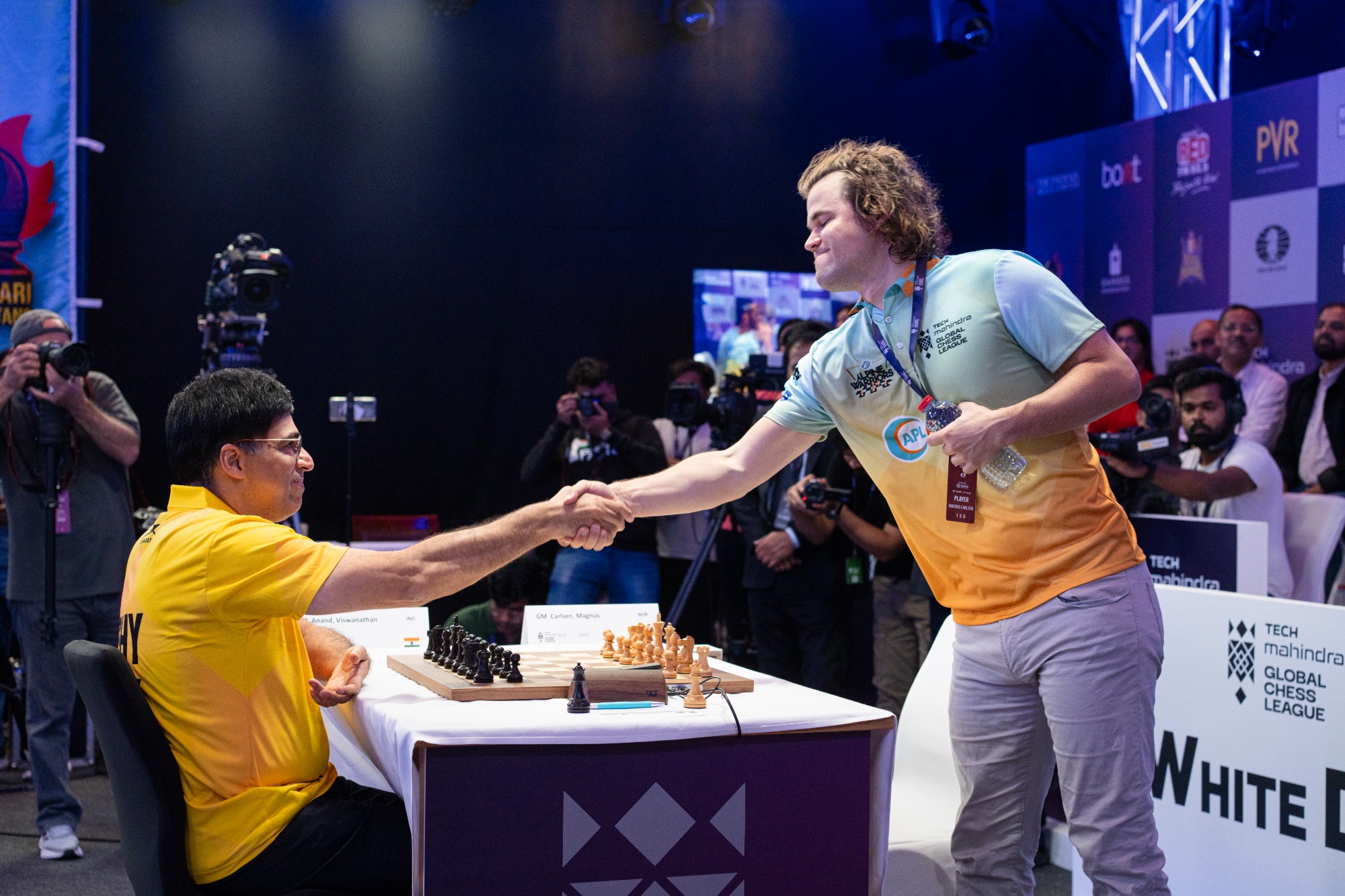The second day of the Tech Mahindra Global Chess League witnessed the debut of Magnus Carlsen, the strongest chess player in the world, as his team SG Alpine Warriors experienced mixed fortunes while playing two matches for the day at Le Meridien hotel, Dubai.
The lead player for Warriors, Carlsen played his first game against Ian Nepomniachtchi, a two-time challenger for the world crown, of Balan Alaskan Knights before taking on former five-time world champion Vishwanathan Anand. Despite holding the white advantage and beating Anand on the first board, the Warriors lost to Anand’s Ganges Grandmasters as the two renewed their old, arch rivalry.
Carlsen got the bragging rights again over Anand, the man he beat in 2013 to claim the title of world champion for the first time. Carlsen seized early initiative, gaining an extra pawn and more initiative, for a better position. Anand gradually fell into time trouble.

Magnus Carlsen, right, shakes hands after his win over Vishwanathan Anand. Global Chess League
After an exchange of heavy pieces, Carlsen ended up in a significantly better position, and Anand had to resign. “There’s always a special touch when we play”, said Anand post-match.
“It was good to play Vishy but right now I am more concerned about my team”, Carlsen added. And he was right. Luckily for the Ganges Grandmasters, they bounced back with victories on boards two and five.
Richard Rapport convincingly defeated GM Gukesh, while Bela Khotenashvili triumphed over Elisabeth Paehtz. With the remaining three games ending in draws, despite their loss on board one, the Ganges Grandmasters crushed the SG Alpine Warriors with a final score of 11 to 6.
Earlier, the day started with Warriors winning 9 to 7 against the Knights. Carlsen and Nepomniachtchi settled for a quick draw, which was not the case for the rest of the games. The Knights’s Teimour Radjabov won as black, earning them four crucial points. Fortunately for the Warriors, they made a comeback with two victories, securing six points.
After draws on two other boards the result was 8-6 for Warriors. Everything was hanging on the last game between Indian chess hope Gukesh D who was up against Nodirbek Abdusattorov, the 2021 rapid world champion. Abdusattorov made a strong push from the early stages, but Gukesh managed to hold his ground, ensuring his team’s victory with a final score of 9-7.
“I had a small edge but it was largely even through. I wanted to play a more interesting game but this one went the way it did,” said Carlsen who also noted that he is excited to be taking part in this event which is more dynamic and different to most others in chess.
In the second match of the day, Chingari Gulf Titans took on Triveni Continental Kings in white with both teams seeking their first win. It started well for the Titans whose players managed to create stronger positions and take initiative in the match.
In the duel of the prodigies, Nihal Sarin scored an impressive victory against Jonas Buhl Bjere, setting the Titans off to a good start. However, following a mistake in a tense game, Daniil Dubov allowed Wei Yi to score as black, as the Kings made a comeback in style. With four other games ending in a draw, Yi’s victory was crucial to secure them an overall edge of 8:7 in the match.
























